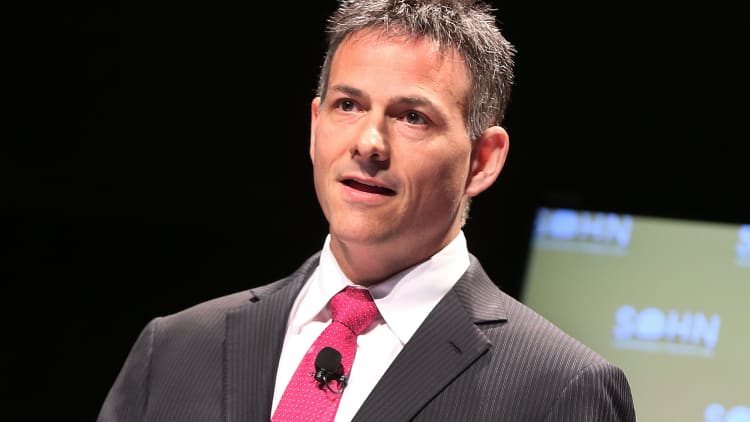
Billionaire hedge fund manager David Einhorn said value investing will make a comeback eventually and its ineffectiveness right now is just a "temporary phenomenon."
"The last time it happened was around 1999 when everyone was talking about eyeballs as the new paradigm for investing," Einhorn said Wednesday on CNBC's "Closing Bell," referring to the dot-com bubble run in growth stocks. "That didn't end very well" for momentum investors.
Value investing is "due at some point for a significant recovery," he said. "When it reverts, it tends to revert pretty sharply. And I think it will do so."
Einhorn is optimistic about tax reform and the potential impact it will have on his investments.
"I actually think tax reform has a much better chance of passing than the health care package did," he said. "Companies we own in our portfolio tend to be profitable, so they tend to pay taxes. So lower corporate tax rates should really benefit them."
On the flip side, he added the stocks he is currently betting against don't generate significant profits, so tax reform will not help them much.
"We're kind of hoping tax reform will pass, and we expect that will be positive" for the firm's returns, the manager said.
Einhorn wrote about the recent underperformance of his main investing strategy in a letter to clients Tuesday obtained by CNBC.
"The market remains very challenging for value investing strategies, as growth stocks have continued to outperform value stocks," he wrote in the letter. "The persistence of this dynamic leads to questions regarding whether value investing is a viable strategy."
His hedge fund firm Greenlight Capital returned 6.2 percent in the third quarter, bringing its performance for 2017 through September to 3.3 percent. In comparison the S&P 500 rose 14.2 percent in the same year-to-date time period, according to the investor letter.
The investor wasn't sure when value investing will outperform again, he told his clients.
"The knee-jerk instinct is to respond that when a proven strategy is so exceedingly out of favor that its viability is questioned, the cycle must be about to turn around. Unfortunately, we lack such clarity," he wrote.
"After years of running into the wind, we are left with no sense stronger than, 'it will turn when it turns.'"


